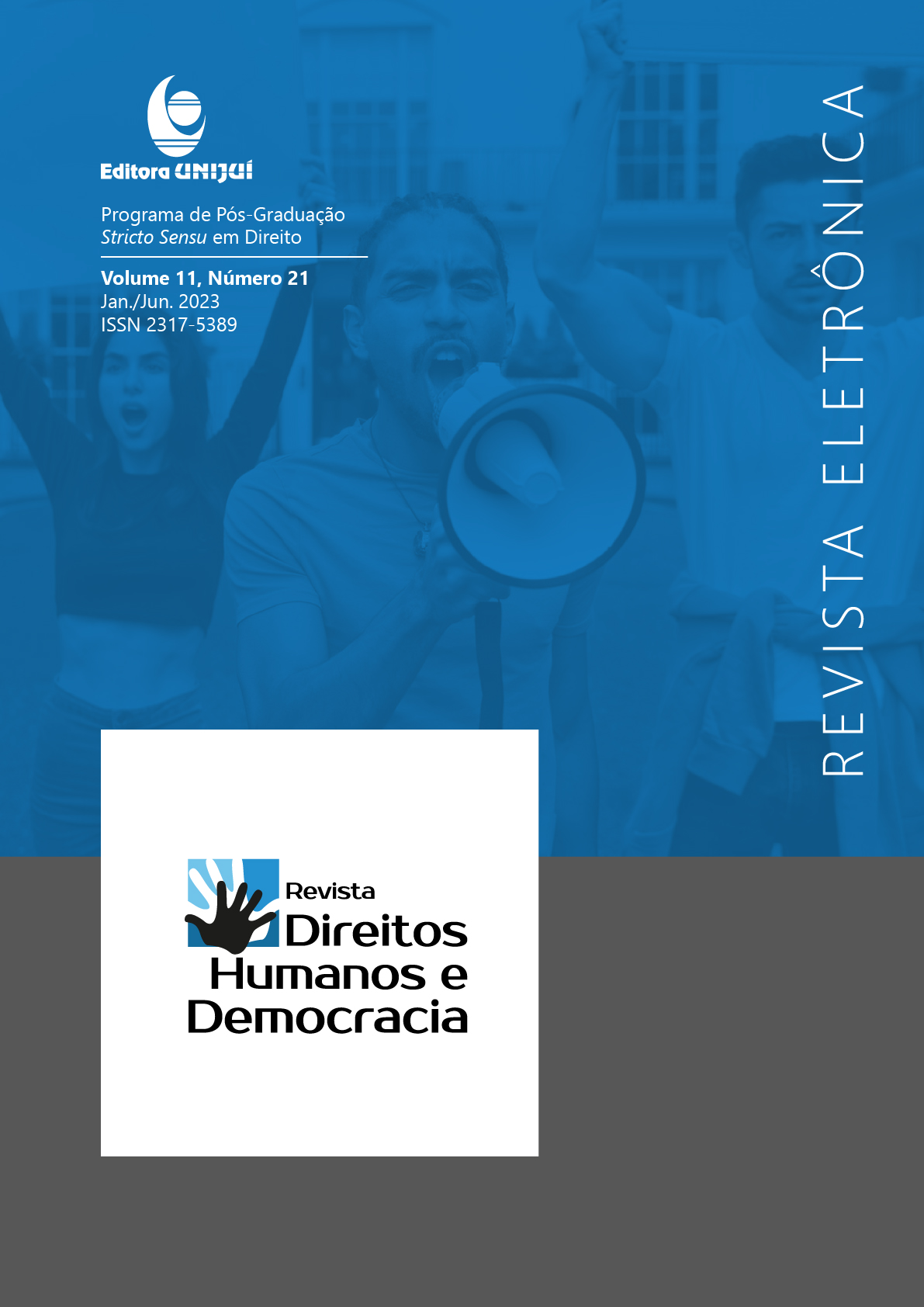State perfectionism: A critical analysis of John Rawls based on John Finnis' new natural law theory
DOI:
https://doi.org/10.21527/2317-5389.2023.21.12777Abstract
The purpose of this article is to present the state perfectionism defended by the neoclassical tradition of natural law – especially from the analytical philosopher of law John Finnis. Such political theory argued that the State can and should intervene in the lives of its citizens in favor of a perspective of good life or human flourishing. However, as a central issue, it is questioned that, in a plural and democratic society, there is supposedly the indispensability of a neutral state action, which does not benefit individuals based on controversial and contradictory views of excellence. Thus, with the objective of scrutinizing the exposed demand, first, it investigates the conception supported by John Rawls, prominent defender of state anti-perfectionism in the 20th century; then, it analyzes the foundation of the finnisian political theory – community, flourishing and authority –; so that, finally, after the criticism directed at Rawlsian arguments, the delimitation of the political common good, as the sphere of state action in the conduct of people, can emerge as a perfectionist political alternative.
References
AQUINO, Santo Tomás de. Summa Theologiae. Tradução Alexandre Corrêa. Caxias do Sul, RS: Sulina, 1980. Edição bilíngue (latim-português).
FINNIS, John. Aquinas: moral, political, and legal theory. New York: Oxford University Press, 1998.
FINNIS, John. Human Rights and Common Good. Oxford: Oxford University Press, 2011a.
FINNIS, John. Is natural law theory compatible with limited government? In: GEORGE, Robert P. (ed.). Natural law, Liberalism, and Morality. Clarendon Press: Oxford, 1996. p. 1-26.
FINNIS, John. Lei natural e direitos naturais. São Leopoldo: Editora Unisinos, 2007.
FINNIS, John. Natural Law and Natural Rights. 2. ed. New York: Oxford University Press, 2011b.
FINNIS, John. Philosophy of Law. Oxford: Oxford University Press, 2011c.
FINNIS, John. Reason in action. Oxford: Oxford University Press, 2011d.
FINNIS, John; GRISEZ, Germain; BOYLE, Joseph. Practical Principles, Moral Truth and Ultimate Ends. Journal Articles, 1987.
GEORGE, Robert. Making men moral: civil liberties and public morality. Oxford: Clarendon Press, 1993.
MORRISON, Wayne. Filosofia do direito: dos gregos ao pós-modernismo. São Paulo: Martins Fontes, 2012.
NAGEL, Thomas. Rawls on justice. The Philosophical Review, v. 82, n. 2, p. 220-234, 1973.
RAWLS, John. Political liberalism. Columbia: Columbia University Press, 2005.
RAWLS, John. A theory of justice. Harvard: Harvard University Press, 1999.
RIKER, Dienny. A razão do casamento: uma reflexão filosófica a partir da lei natural. Brasília: Episteme, 2020.
REDONNET, Diego M. Serrano. Liberalismo, neutralidad estatal y perfeccionismo: Rawls y su crítica. Prudentia Iuris, n. 73, p. 117-144, 2012.
SOUZA, Elden; PINHEIRO, Victor. A interdependência entre democracia, bem comum e direitos humanos: contribuições jusnaturalistas. In: PINHEIRO, Victor Sales (org). A filosofia do direito natural de John Finnis: vol. 1: conceitos fundamentais. Rio de Janeiro: Lumen Juris, 2020.
TOLLEFSEN, Christopher. Pure Perfectionism and the Limits of Paternalism. In: KEOWN, John; GEORGE, Robert P. (ed.). Reason, Morality, and Law: The Philosophy of John Finnis, 2013. p. 204.
TOLLEFSEN, Christopher. The new natural law theory. Lyceum, [S.l.], v. 10, n. 1, p. 1-17, 2008.
Downloads
Published
How to Cite
Issue
Section
License
Copyright (c) 2023 Revista Direitos Humanos e Democracia

This work is licensed under a Creative Commons Attribution 4.0 International License.
By publishing in the Revista Direitos Humanos e Democracia, authors agree to the following terms:
Articles are licensed under the Creative Commons Atribuição 4.0 Internacional (CC BY 4.0), which allows:
Share — copy and redistribute the material in any medium or format;
Adapt — remix, transform, and build upon the material for any purpose, including commercial use.
These permissions are irrevocable, provided the following terms are respected:
Attribution — authors must be properly credited, with a link to the license and indication of any modifications made;
No additional restrictions — no legal or technological measures may be applied that restrict the use permitted by the license.
Notices:
The license does not apply to elements in the public domain or covered by legal exceptions.
The license does not grant all rights required for specific uses (e.g., image rights, privacy, or moral rights).
The journal is not responsible for opinions expressed in the articles, which remain the sole responsibility of the authors. The Editor, with the support of the Editorial Committee, reserves the right to suggest or request modifications when necessary.
Only original scientific articles presenting research results of interest, not previously published or simultaneously submitted to another journal with the same purpose, will be accepted.
References to trademarks or specific products are intended solely for identification purposes and do not imply any promotional endorsement by the authors or the journal.
License Agreement: Authors retain copyright over their articles and grant the Revista Direitos Humanos e Democracia the right of first publication.













